Revisiting the Hundred Languages of Children
I first posted The 100 Languages of Children poem as part of my emergent curriculum series in August 2009. In the context of early education, I believe it is a powerful poem.
I was recently reminded of it’s awesomeness via this visual representation, The Hundred Languages Illuminated Poem by Sarah McRoberts.
As we stand on the precipice of Immy’s first steps into formal schooling, this poem is made even more poignant in my mind. Especially given her preference for everything creative and imaginative.
What are your thoughts? Does the mainstream school system inhibit the child’s capacity for imagination, original thought, invention, dreaming? Are our schools and teachers resourced sufficiently to cope with the hundred individual learning languages of our children? How can we support our schools to support our children to develop as well rounded, intelligent and creative thinking individuals?
Read more of the Understanding Emergent Curriculum series;


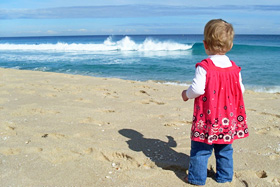
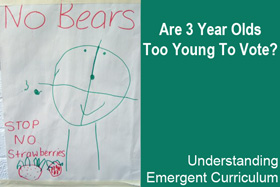
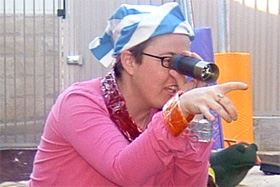

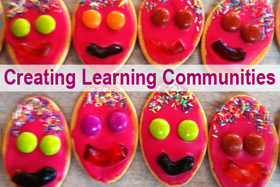
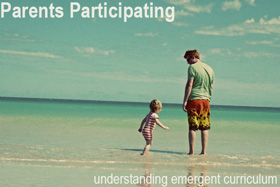
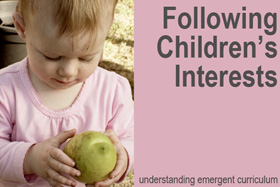
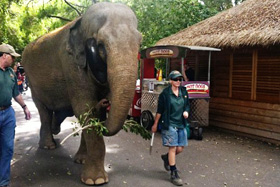
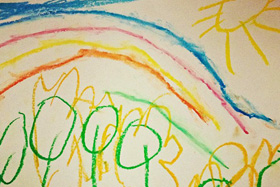
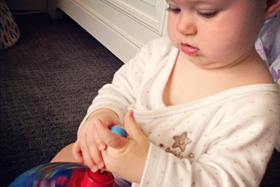
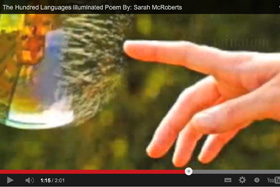
Hi, likeminded people…I also made a same kind of post!
This is the URL: http://www.angeliquefelix.com/articles/reggio-children-are-image-builders
It’s a great video, and the poem is breathtaking. I was in Reggio. It changes your whole beliefsystem about education, fear, control and more. I was very impressed!
How wonderful it must have been to visit Reggio, Angelique. It has always been a dream of mine, especially since I heard a number of their wonderful teachers/speakers at a conference and saw an exhibition of their ‘work.’
I think – I believe – that schools are changing. And as far as I can see its on some ways from the bottom up. Early childhood educators and children are showing how different ways of learning can be used in a mainstream setting. And I think that if we keep wanting things to change then as parents, as teachers and as students we need to keep going, keep advocating, knowing what we believe, what we want and modeling that all the time. I have seen a lot of change in early childhood education since I began way back in 1993, we just have to keep going.
This was on the door of the Munchkin’s pre-school last year. It was what made me cry as I said good-bye to him… to know that his pre-school were going to honour those hundred languages within him – I knew he was in safe hands.
Your sharing it with us today, as he nears his entry into “big” school (almost 2 more weeks – not soon enough!), reminds me t0 trust in our decision when selecting his new school – hoping that this philosophy will continue not just be in early learning, but all the way through his school life. It’s something worth fighting for… keep up the fight!
Thank you for sharing (and making me cry again!)
Sorry to make you cry, Cath! How wonderful to be in a preschool or school that supports the hundred languages, a true gift 🙂
funny you ask that !!
having been on 2 lots of school placements so far as part of my teaching degree, I am continually amazed at the lack of time for completing activities, and free time for exploring. I was constantly frustrated: for myself -> in getting all my agenda completed (time limit for getting what I had to do done), for the kids -> in keeping up and completing work, and in massively packed curriculum !! it seems like there is just no time to go with the kids thoughts, creative activities are minimal because more time and effort is focused on numeracy and literacy (good and bad)… it hurts my brain when I wonder if we are robbing some kids of their passions and enthusiasm. I have no idea how I as a teacher will be able to complete a whole year of work when each child deserves the time to follow things through and repeat or explore etc….. where has childhood gone !?!?!? 🙂
Lauren
I remember the packed timetable well from my teaching days, Lauren. I think maybe the compromise in this case is to find ways to set tasks that encourage children to respond individually within the areas of learning/skill development that they are working on. As to your question, where has childhood gone? I would love to know!
heres some food for thought!
http://www.ted.com/talks/ken_robinson_says_schools_kill_creativity.html
Lauren
I am ecouraged to see that the teachers in the early years of formal education are attempting to follow students interests when it comes to implementing curriculum. There seems to be some scope for creative thinking, open ended activities where problem solving and critical thinking are employed. The approach seems to be that difference is valued and the “system” is not based on the the notion of “one size fits all” (as it should be).
But, while we have standardised testing (which I believe can be discriminatory in what it values) and assessment where students must conform to set criteria in order to experince “success” (in the eyes of those that implement the curriculum), there is little scope for choice, freedom and flexibility – the very things that are needed to facilitate classrooms where creativty is not stifled.
It is encouraging to hear that you have seen change, Elise, especially in the early years.